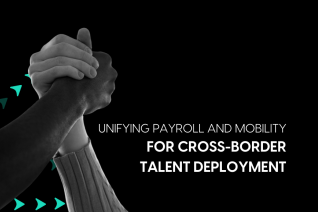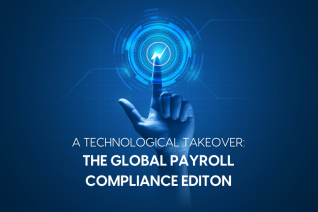Run your business seamlessly with Neeyamo as we help you go beyond borders to manage your international payroll and hire new talent in Cuba.
Overview
1961, known as the "Year of Education" in Cuba, saw an eight-month-long literacy campaign to abolish illiteracy. The government implemented a three-stage program to ensure that it covered all age groups of its population. Now, owing to the success of their campaign, Cuba's population has a literacy rate of almost 100%, one of the highest literacy rates in the world. This literate population directly fueled a skilled, talented workforce, catalyzing socioeconomic progress.
If your organization's expansion plans require you to hire employees in Cuba and you lack a physical entity in the country – a key requisite to hire local talent, your solution is right here with Neeyamo – Payroll management services. Neeyamo's global payroll solutions provide assistance for the onboarding and management of employees in Cuba, along with the processing of a firm's payroll accounting and tax services, handling payroll risks and controls, compliance, benefits, and more.
Tools And Instances
Facts And Stats
Capital
Havana
Currency
Cuban Peso (CUP)
Official Language
Spanish
Fiscal Year
1 January - 31 December
Date Format
DD/MM/YYYY
Country Calling Code
+53
Other Languages
English, French, and Chinese
Time Zone
Cuba does not observe daylight saving time, so it is always in the Cuba Standard Time Zone, which is UTC-4.
Global Payroll
Overview
Handling payroll for a widespread workforce can pose as a major challenge for any firm. The added complication of compliance can make things worse and drastically effect the time and efforts that can be used in other equally important aspects of an organization's development.
Over the years, Neeyamo has observed these complexities and strived to provide a global payroll solution through a single technology platform, Neeyamo Payroll.
Payroll Taxes
Payroll tax is the percentage amount retained from an employee's salary and paid to the government to invest in the welfare of the general population.
Employee Taxes
Contribute between 1% to 5% of their earnings, depending on the type of employment and specific circumstances.
Income tax rates:
Residents Income Tax Table
|
Income Tax Rate |
Threshold (Annual) |
|
15% |
From ₱ 0.000.00 to ₱ 10,000.00 |
|
20% |
From ₱ 10,000.01 to ₱ 20,000.00 |
|
30% |
From ₱ 20,000.01 to ₱ 30,000.00 |
|
40% |
From ₱ 30,000.01 to ₱ 50,000.00 |
|
50% |
From ₱ 50,000.01 and above |
Non-residents Income Tax Tables
|
Income Tax Rate |
Threshold (Annual) |
|
15% |
From ₱ 0.000.00 to ₱ 10,000.00 |
|
20% |
From ₱ 10,000.01 to ₱ 20,000.00 |
|
30% |
From ₱ 20,000.01 to ₱ 30,000.00 |
|
40% |
From ₱ 30,000.01 to ₱ 50,000.00 |
|
50% |
From ₱ 50,000.01 and above |
Employer Taxes
Contribute social security contributions of 14.5% of the employee's salary.
Payroll Cycle
Overview
Undoubtedly, payroll is a critical aspect of any organization. The Pay cycle is a notable feature that provides a sense of accountability for an employee to be paid consistently for their work.
Frequency
The frequency cycle is Monthly.
13th Month Cycle
There is no statutory requirement to provide a 13th salary.
Global Work
Overview
An Employer of Record service provider helps you get rid of the hassle of handling the complexities that come with setting up a new employee in remote locations. They act as legal employers, facilitate salary payments, and handle everything from health insurance, payroll taxes, and employee benefits to comply with local tax laws and regulations.
This ensures that the client company can focus on the employee’s everyday tasks safely in the knowledge that they have a cost-effective solution as they continue their global expansion.
HR Mandates and Practices
Minimum Wage
The minimum wage in Cuba is CUP 2,100 per month.
Overtime
In Cuba, overtime rules in the private sector are regulated by the government's labor laws. Overtime is defined as any work performed beyond the normal 8 hours per day or 44 hours per week. The maximum limit for overtime work is 4 hours or 24 hours per week. Overtime must be compensated at 1.5 times the employee's regular hourly wage and must be authorized in advance by the employer. Employees are entitled to an additional day off for each day of overtime worked, or they can choose to receive additional pay at their regular hourly wage rate. Overtime work must be recorded in the employee's time sheet, and employees under the age of 18 are prohibited from working overtime.
Data Retention Policy
In Cuba’s private sector, there are regulations regarding employee data retention. The law in Cuba establishes a statutory retention period of up to five years for records unless otherwise specified by law or consented to by the data subject.
Hiring and Onboarding Requirements
Hiring
In the private sector in Cuba, employers generally look for employees who are skilled, motivated, and have a good work ethic. As the private sector in Cuba is relatively new and still developing, many employers place a high value on employees who are adaptable and able to learn new skills quickly.
When it comes to hiring, employers in Cuba are required to give preference to Cuban citizens and permanent residents. This is in accordance with the Cuban labor law, which aims to prioritize the employment of local workers.
In terms of specific preferences, it can vary depending on the industry and the specific needs of the employer. However, some common preferences include:
- Proficiency in English or other foreign languages, as this can be beneficial for companies that have business relationships with foreign companies.
- Relevant work experience, particularly in the industry or field in which the company operates.
- Education and qualifications, such as a degree or diploma from a reputable institution.
- Strong communication and interpersonal skills, as these are important for building relationships with clients and colleagues.
- A positive attitude and a willingness to learn and grow with the company.
It is important to note that the Cuban government has a policy of promoting equal opportunity and non-discrimination in employment. Therefore, employers are not allowed to discriminate based on race, color, gender, age, religion, or political beliefs.
It's also important to note that the private sector in Cuba is still developing and the labor market is constantly changing.
Onboarding
For onboarding employees in a company in Cuba, the following documents and information are typically required:
- Full Employment Contract: A comprehensive contract detailing the employee's terms of employment, including job title, responsibilities, compensation, and termination conditions.
- Payroll and Tax Information: Documents related to the employee's salary, tax deductions, and any other relevant financial information.
- Employee Handbook: A guide that outlines the company's policies, work culture, and expectations for employees.
- Detailed Role Description and Responsibilities: A document that clearly defines the employee's job duties, responsibilities, and objectives.
- Benefits Information: Details about the employee's benefits package, including health insurance, retirement plans, and any other benefits.
- Essential Training Materials: Any necessary training materials, such as data security policies or specific industry knowledge.
- Software Checklist: A list of software and tools the employee will need access to, including logins and passwords.
- Equipment Checklist: Information about any equipment the employee will need, such as a laptop or other devices.
Probation
In the private sector in Cuba, probation periods are commonly used as a way for employers to evaluate the performance and suitability of new employees. The probation period is a specified period of time during which the employer can assess the employee's skills, abilities, and overall fit with the company.
The length of the probation period can vary depending on the company and the specific job role, but it typically ranges from 3 to 6 months. During this time, the employer can terminate the employment contract with notice or without cause, depending on the terms of the contract.
The probation period is also a time for the employee to assess whether the job and the company are a good fit for them. If the employee decides that the job is not a good match, they can also terminate the contract with notice, depending on the terms of the contract.
It is important to note that during the probation period, the employee is entitled to the same rights and benefits as other employees, including the minimum wage, social security, and paid leave.
It is also important to note that the probation period and the terms of the employment contract must comply with the Cuban labor law and regulations.
Leave
Overview
The statutory public holidays in Cuba for the year 2024 are as follows:
- December 31 - Triumph of the Revolution (Start)
- January 1 - Triumph of the Revolution (End)
- April 10 - Good Friday
- May 1 - Labor Day
- July 25 - Day before the Commemoration of the Assault of the Moncada garrison
- July 25 to 27 - National Rebellion Day
- October 10 - Independence Day
- December 25 - Christmas Day
- December 31 - New Year's Eve
Annual Leave
This is a standard leave entitlement that allows employees to take a break from work. The duration of annual leave can vary, but it's common for employees to be entitled to at least 20 days of annual leave per year.
Maternity and Paternity Leave
In the private sector, employees are generally entitled to maternity and paternity leave. This can include a period of unpaid leave for the mother and a period of paid leave for the father.
Sick Leave
Employees are typically entitled to sick leave, which allows them to take time off work if they are ill. The length of sick leave can vary, but it's common for employees to be entitled to take time off without pay until they are better.
Bereavement Leave
Employees may be entitled to a short period of leave to attend the funeral of a close relative.
Special Leave
Depending on the employer's policies and the nature of the employee's work, special leaves may be granted for various reasons, such as for military personnel, interior ministry staff, certain self-employed persons, artists, musicians, and members of agricultural cooperatives.
Termination
Notice Period
In the private sector in Cuba, the notice period is the amount of time that an employer or employee must give before terminating an employment contract. The notice period is intended to provide both parties with sufficient time to prepare for the end of the employment relationship.
The length of the notice period in Cuba is regulated by the labor law and can vary depending on the length of service of the employee.
- For employees who have been employed for less than 6 months, the notice period is 7 days.
- For employees who have been employed for more than 6 months but less than 2 years, the notice period is 15 days.
- For employees who have been employed for 2 years or more, the notice period is 30 days.
It is important to note that the notice period can be longer if it is specified in the employment contract or if it is provided for in a collective bargaining agreement.
Additionally, the notice period can be waived or shortened by mutual agreement between the employer and the employee.
It is also important to note that during the notice period, the employee is entitled to the same rights and benefits as other employees, including the minimum wage, social security, and paid leave.
Severance Pay
Unlike many other countries, Cuba's private sector does not mandate severance pay in cases of employment termination. This is because the concept of "firing" an employee doesn't directly translate in the Cuban context.
Instead of termination, the Cuban Labor Code utilizes a process called "devolución", which essentially means returning the employee to the hiring pool (or the entity that hired them to the employer). This system aims to ensure job security and redeployment within the state-controlled system.
However, upon "devolución" the employee is still entitled to receive the following:
- Salary earned for the work performed.
- Accumulated amount for annual paid vacations.
- Social security contributions that were previously withheld from their salary.
There may be specific contractual clauses in individual employment agreements that outline additional compensation in case of termination, but this is not mandated by law.
Visa
Overview
To work in the private sector in Cuba, you would typically need a D-7 visa, which is designated for traders and business people. The requirements for obtaining a work visa in Cuba, including the D-7 visa, involve several steps and documents:
- Authorization: You must first obtain authorization from the commercial office at the Embassy of Cuba for traveling for business purposes.
- Passport: A valid passport with at least 2 months' validity after your departure from Cuba is required.
- Passport-size Photo: A recent passport-size photo is necessary for the application
- Application Form: Complete the Cuba Business Visa application form, which can be obtained from the website of the Cuba diplomatic mission through which you are applying.
- Health Insurance: Proof of travel health insurance covering sudden illness, accidents, and repatriation is needed.
- Visa Fee Payment: You must pay the Cuba visa fee, which can be made in cash, through a certified bank, or through a bank transfer. Payment methods may vary by consulate, so it's important to check the specific requirements.
- Mailing: If applying by mail, include a pre-paid envelope with sufficient stamps and an address where the consulate can return your documents. Do not include cash for the visa fee in the envelope; pay by bank if applying by mail.
It's important to note that obtaining a work visa for Cuba can be challenging unless you have a contract offer prior to applying or have relatives who are Cuban citizens. The type of work visa you need (D-7 for traders and business people) must match your profession and the nature of your work in Cuba.
Employee Background Checks
Legal and Background Checks
In the private sector of Cuba, background checks are not as common as in some other countries, but they are becoming more prevalent as the economy opens up and private businesses grow. Here are some types of background checks that may be conducted in the Cuban private sector:
- Criminal background checks: Employers may check for criminal history, though the availability and accessibility of such information may be limited.
- Education and employment verification: Employers may contact educational institutions and previous employers to verify the applicant's educational background and work history.
- Credit checks: In some cases, employers may conduct credit checks, especially for positions related to finance or handling money. However, Cuban law regulates the use of credit information, and employers must obtain the applicant's consent before conducting a credit check.
- Reference checks: Employers may contact personal and professional references provided by the applicant to gather additional information about their character, work ethic, and suitability for the position.
- Social media and online presence checks: Employers may review an applicant's social media profiles and online presence to gain insights into their character, behavior, and professionalism.
It is important to note that Cuban law regulates the use of personal data, and employers must comply with data protection regulations when conducting background checks. Additionally, employers must obtain the applicant's consent before conducting certain types of background checks, such as credit checks.
Last updated on March 12, 2024
If you have any queries or suggestions, reach out to us at irene.jones@neeyamo.com







